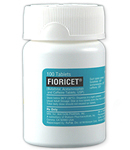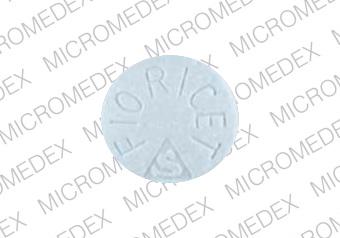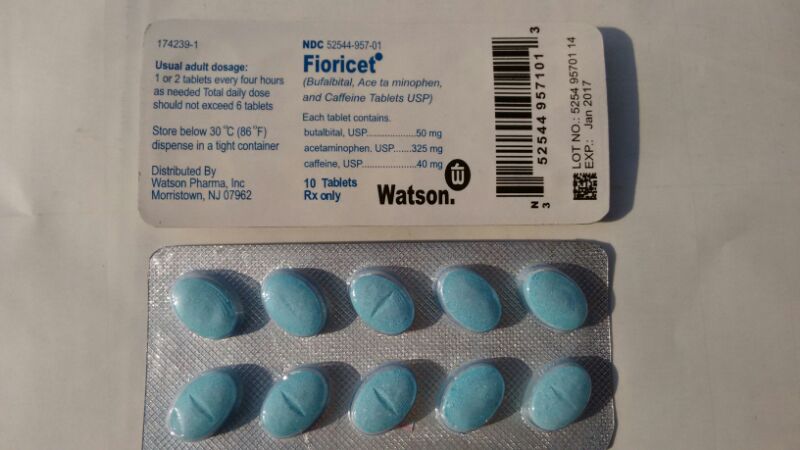Preventing Misuse or Abuse of Butalbital
- Use painkillers, such as those containing butalbital, only as directed.
- Do not take butalbital unless you have a prescription.
- Store it in a secure place.
- Dispose of it properly.
Buy Butalbital APAP Caffeine online
Re-establishing or maintaining sufficient respiratory exchange is crucial in butalbital overdose treatment. This can be accomplished through the use of medically assisted detox or controlled ventilation. Severe respiratory depression resulting from a butalbital overdose can be treated with the opioid antagonist naloxone hydrochloride. Naloxone hydrochloride is preferably administered intravenously and simultaneously with respiratory resuscitation efforts. Butalbital overdose treatment can also include the following as needed:
If the butalbital overdose results in methemoglobinemia that covers over 30 percent of the body, it should be treated with a slow intravenous administration of methylene blue.
Taking more than the prescribed dosage of the drug or taking it when it is not prescribed to you can cause serious butalbital overdose symptoms that may result in fatal consequences. Addiction to butalbital can have very serious or even fatal consequences. If you are worried that your use of the drug may cause you to experience butalbital overdose symptoms, call1-888-630-7086 to find the assistance you need for butalbital detox and withdrawal
 Fioricet Side effects cannot be anticipated. If any develop or change in intensity, tell your doctor as soon as possible. Only your doctor can determine if it is safe for you to continue taking this drug. Fioricet Side effects may include: fatal skin reactions, seizure, confusion, depression, excitement, stomach pain, dizziness, drowsiness, intoxicated feeling, lightheadedness, nausea, sedation, shortness of breath, vomiting, excessive sweating.
Fioricet Side effects cannot be anticipated. If any develop or change in intensity, tell your doctor as soon as possible. Only your doctor can determine if it is safe for you to continue taking this drug. Fioricet Side effects may include: fatal skin reactions, seizure, confusion, depression, excitement, stomach pain, dizziness, drowsiness, intoxicated feeling, lightheadedness, nausea, sedation, shortness of breath, vomiting, excessive sweating.
Commonly reported side effects for Fioricet include:
Fioricet is implicated as causing repeat headaches with over-use.
Commonly reported side effects for Fioricet include:
Fioricet is implicated as causing repeat headaches with over-use
 The treatment of Fioricet overdose is complicated by the presence of two substances which are highly toxic when taken in excessive amounts. Fioricet overdoses generally result in toxic amounts of both acetaminophen and butalbital being consumed at once, requiring both overdoses to be treated at once. Fioricet overdose by anyone and/or any consumption by persons to whom it is not prescribed (particularly children) is always a medical emergency and medical attention must be sought immediately if an overdose or consumption by other persons is suspected.
The treatment of Fioricet overdose is complicated by the presence of two substances which are highly toxic when taken in excessive amounts. Fioricet overdoses generally result in toxic amounts of both acetaminophen and butalbital being consumed at once, requiring both overdoses to be treated at once. Fioricet overdose by anyone and/or any consumption by persons to whom it is not prescribed (particularly children) is always a medical emergency and medical attention must be sought immediately if an overdose or consumption by other persons is suspected.
Fioricet overdose is often fatal and symptoms may not present for hours following consumption; once initial overdose symptoms present they can progress rapidly and there may not be time to reach appropriate medical care after this point.
Acetaminophen exerts its toxicity through the production of a toxic metabolite which can sometimes produce liver damage with doses as low as 4,000 mg, although normally requiring doses that are much higher. Acute liver failure may result in doses greatly exceeding this, and death has been known to occur with ingestion of 10,000-15,000 mg (10-15 grams of pure acetaminophen).
The specific antidote to acetaminophen overdose is N-acetylcysteine. Acute renal failure and upper gastrointestinal bleeding may also occur.
Butalbital exerts its toxicity through excessive sedation resulting in respiratory depression and ultimately death via hypoxia. Nonlethal overdoses may also result in coma and death. There is no specific antidote to barbiturate overdose and treatment is supportive. Common treatment regimens generally include the administration of intravenous administration of saline, naloxone, thiamine, glucose, sodium bicarbonate to alkalize the urine to increase rate of excretion, and activated charcoal via nasogastric tube.
It is not uncommon for a doctor to recommend observation of the patient in the emergency department for a number of hours or admission to the hospital for several days of observation if symptoms are severe and to counsel the patient on drug abuse or refer them for psychiatric evaluation.
Fioricet can cause side effects that may impair your thinking or reactions. Be careful if you drive or do anything that requires you to be awake and alert.
Avoid drinking alcohol. It may increase your risk of liver damage while taking acetaminophen.
 Avoid taking Fioricet with medications that affect your concentration, such as other narcotic pain relievers, general anesthetics, sleeping pills, anti-allergy medications, sedative-hypnotics, and tranquilizers (such as chlordiazepoxide). These may cause further drowsiness.
Avoid taking Fioricet with medications that affect your concentration, such as other narcotic pain relievers, general anesthetics, sleeping pills, anti-allergy medications, sedative-hypnotics, and tranquilizers (such as chlordiazepoxide). These may cause further drowsiness.
Ask a doctor or pharmacist before using any other cold, allergy, pain, or sleep medication. Acetaminophen (sometimes abbreviated as APAP) is contained in many combination medicines. Taking certain products together can cause you to get too much acetaminophen which can lead to a fatal overdose. Check the label to see if a medicine contains acetaminophen or APAP.
While you are taking Fioricet, avoid taking diet pills, caffeine pills, or other stimulants (such as ADHD medications) without your doctor’s advice.
Do not use Fioricet if you have taken an MAO inhibitor in the past 14 days. A dangerous drug interaction could occur. MAO inhibitors include isocarboxazid, linezolid, phenelzine, rasagiline, selegiline, and tranylcypromine.
You should not use Fioricet if you are allergic to acetaminophen, butalbital, or caffeine, if you have porphyria, or if you have recently used alcohol, sedatives, tranquilizers, or other narcotic medications.